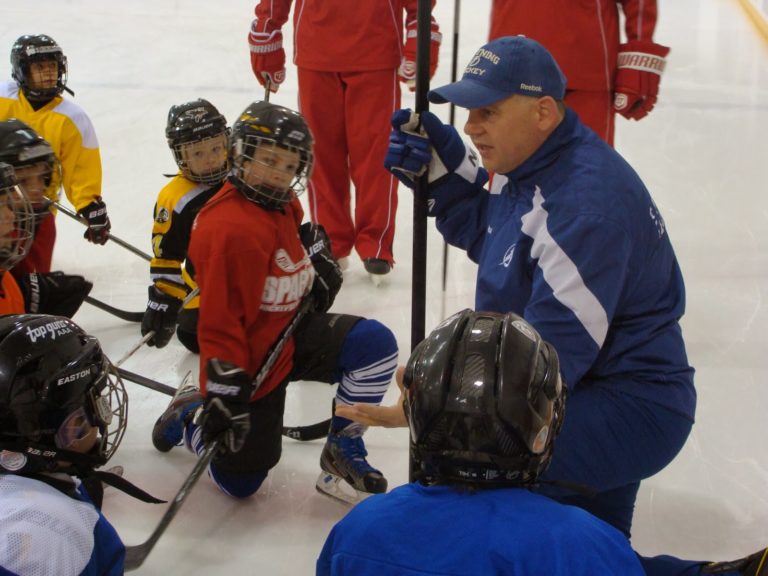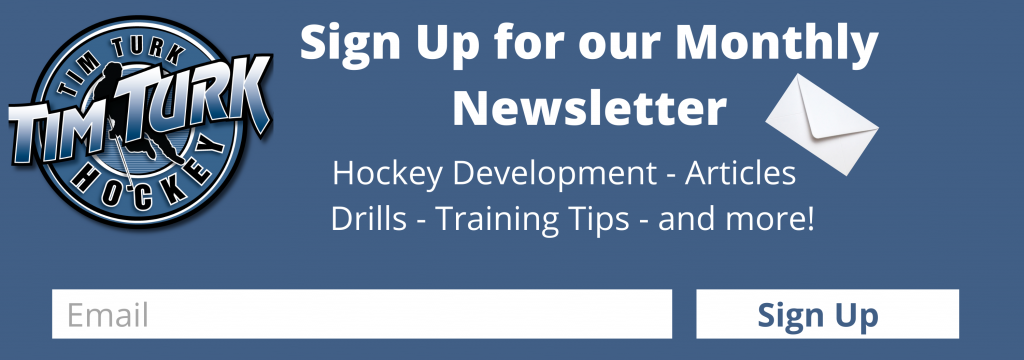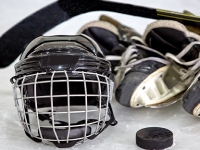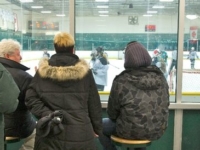Lack of focus on a hockey team can be a big problem for coaches. It happens at all ages and skill levels too—-it’s not just the younger ones that fool around and chit-chat!
As a coach, you want your team to pay attention during the entire practice or game. After the practice is over, they can talk, laugh and mess around all they want. Yet, during practice is often the time your team chooses to talk and distract each other, so most of your advice may go in one ear and out the other.
You’ve likely told them to stop talking and reminded them to pay attention a thousand times, but nothing changes. How can you focus your hockey team so that they listen to you, learn from the practices, and perform well in the games?
It turns out that there’s more you can do than just constantly remind your team to focus. Here are 7 strategies you can use to help focus your hockey team:
1. Display energy and enthusiasm
The first and arguably easiest way to focus your team is to show energy and enthusiasm when you talk to them.
People naturally have trouble listening to a speaker whose voice is monotonous and dry. We subconsciously make it background noise and look for something else to focus on. On the contrary, we naturally tune into a voice that is enthusiastic and has inflection.
When you speak to your team, do your best to display enthusiasm, even if the subject of your speech is perhaps not so exciting or repetitive.
2. Develop a routine
It’s easier for your players to become distracted if they’re not sure what they’re supposed to be doing. The human brain is always searching for some form of active stimulation. If your players don’t have something to do (or don’t know what to do next), they may turn to talking and fooling around with their teammates.
The counter to this problem is to develop a routine for your practices and games.
Move through every practice in the exact same format. For example, gather the players in the same area each time, describe a drill, perform the drill, then gather for feedback. Rinse and repeat. For games, ensure that once your players get off the ice and reach the bench their job is to watch the action and always support their teammates. Your players are more likely to stay focused when they settle into a habitual routine where they know exactly what they should be doing at any time.
3. Provide nutrition suggestions
Sometimes, a player’s physical state is what’s preventing them from staying focused. It’s difficult to focus on anything if you’re sleep-deprived, exhausted, and hungry.
Make it a point to promote good nutrition to your team. Suggest (to players & parents), that they aim for upwards of seven hours of sleep each night, and to have a stable sleep routine altogether. Provide examples of good meals and snacks that will keep them healthy and energized or steer them in the right direction (website links, handouts, etc.).
You can also suggest ways they can get exercise during the week other than playing hockey.
If your team is healthy and energized, not only will they focus more during games and practices, but they’ll perform better in their games too.
4. Make sure everyone has a role
One of the biggest causes of “bored hockey player syndrome” is not having a role for everyone in a drill. Similarly, you may have a drill that involves everyone, but in between the action the players are waiting too long.
Yes, it’s difficult finding unique drills that are easy to run and teach the players something valuable. Still, with each drill, do your best to ensure that each player on the team is active and involved in some meaningful way.
Encourage them to actively watch their teammates during the drill, so they can see what to do or what not to do. That way, they’ll keep their focus on the drill at hand and will be able to fully absorb what they’re supposed to learn.
5. Be positive and encouraging
The more positive and encouraging you are as a coach, the more your players will want to focus so that they can learn and improve.
Try to include as many compliments as you do criticisms of your players. Instill confidence in them; remind them that through hard work and dedication, they can learn whatever they set their mind to and improve as players.
Players want to impress their coaches. If they realize you are genuinely interested in their development, they will strive to please you more, therefore likely paying more attention and absorb all the information they can.
6. Bring in new voices/instructors
If you find you’re having trouble focusing your team despite your best efforts, maybe step down from the plate for a bit! Sometimes a fresh voice is all that’s needed for your players so that they regain their focus.
You can have an assistant coach deliver speeches and run drills. Or, you can hire a specialty skills instructor for a few sessions to target one of your team’s specific weak areas. Either way, if you find your own voice isn’t doing the trick even with enthusiasm, maybe someone can for a change of pace.
7. Establish a keyword for focus
Another tip for focusing your hockey team is another subconscious trick: establish a keyword for when they need to regroup and focus.
The human brain responds much better to shorter, faster, more memorable stimuli. Instead of pleading, “hey guys, please stop talking and focus,” you can have a keyword like “sharp” for when you want to regain your team’s attention. Short and sweet.
To use this tactic effectively, establish at the beginning of the season the word and the idea that it’s meant to get the team to focus. Then, use the word often. If it fails to get everyone to pay attention, repeat it until it succeeds.
The repetition will allow their minds to become accustomed to the word and will create a habit loop. The keyword is the input, focusing is the action that follows, and succeeding and improving in hockey are the rewards the come from the action. Once the habit loop is repeated enough, it will become hardwired in the minds of the players so that whenever they hear the word, they’ll feel the subconscious urge to focus.
After giving these tips a try, if you find that some players still lack focus, it may be more deep rooted than you can help or change. As a coach, you can only do what’s within your power to get the players on your team to pay attention and learn. Past that, if some players are still having trouble focusing, just relax, accept it, and do the best with what you have.






